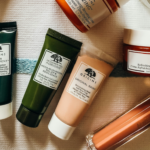When it comes to relationships, trust is one of those foundational pillars upon which everything else rests. This is true on an interpersonal level, but it’s also true between brands and consumers. If trust doesn’t exist, it’s much more difficult for everyone involved to get what they want.
So how trusting are Americans really? Current data reveals that more than a quarter of Americans – 26% to be exact – do not trust others until trust has been earned. The rest of respondents are on a more trusting scale, with some trusting innately and others being somewhere in the middle.
We can also see that men are less trusting than women and especially adults under the age of 25 trust others the least of any age group. The fact that younger people are the least trusting is a theme we’ve seen in the data for a while – and clearly, that lack of trust may not be easing up any time soon.
It’s clear that trust relates to feelings of happiness. Those who trust people from the beginning are far happier than those who reserve their trust until the other party has earned it. So while trusters may end up revoking the trust they’ve given to others, the potential (or reality) of doing so does not seem to get in their way of their day-to-day happiness.
Where Does Consumer Trust Lie?
But how does this impact shopping behavior? Perhaps not surprisingly, those who trust others until given a reason to feel otherwise are the most likely to prioritize brand over price when shopping. This makes sense, since brands generally become what they are as a result of building trust with consumers over time.
In a comparison of five distinct high-profile brands/retailers, we can see that trust is not always a given. As the data show, 41% of those who like Chobani have an innate trust of other people. For Ugg footwear and apparel, 39% of favorables say the same. Following that is Samsung with 38%, Chick-fil-A with 37%, and Family Dollar with 35% of trust among favorables.
It’s worth noting that despite the fact that 39% of Ugg favorables trust others from the start, this brand also has the highest percentage of distrust amongst favorables – 41% say that others have to earn trust before it’s given, likely due to age factors.
Additionally, the impact of inflation should not be overlooked, as those who default to distrust have been cutting back on spending due to rising prices.
Considering the fact that trust or distrust of a brand could sway your purchasing choices, not just in the moment, but potentially for an undetermined time into the future, brands would be wise to take note of their ideal customers’ predilection to trust, as well as their own ability to maintain a trustworthy relationship with their customers.
With so many Americans falling somewhere between immediate trust and immediate distrust, gaining the favor of those in that middle ground, all while navigating fluctuating purchasing behavior in light of inflation, will be the key to long-term sustainable growth.








